Stanford Law Announces Inaugural Class of Sallyanne Payton Fellows
New SLS-supported Fellowship Supports Diverse Students Who Seek a Career in Legal Academia
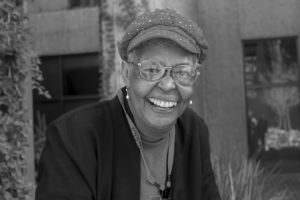
June 18, 2021 — Stanford Law School (SLS) named seven SLS students as the inaugural class of Sallyanne Payton Fellows. Payton, JD ’68, BA ’64, was the first African-American student to graduate from SLS and the first to serve on the Stanford Law Review. The fellowship is one of two new, school-sponsored programs that honor historic firsts at the law school – the other is a teaching prize recognizing inclusive pedagogy in 1L teaching in honor of SLS Professor Barbara Allen Babcock, the first woman member of the SLS faculty. Both are a part of the law school’s 2020-21 Diversity, Equity, and Inclusion (DEI) Initiative.
“The new Sallyanne Payton Fellowship is an innovative way for our school to provide a supportive pathway for pursuing a legal academic career for diverse students,” said Jenny Martinez, dean and Richard E. Lang Professor of Law. “Named after one of our most illustrious, involved and well-loved alumni, this unique fellowship is an integral part of our DEI Initiative that we hope will expand and develop innovative policies and practices across the entire institution to ensure that Stanford Law School becomes a model for 21st century legal education in a pluralist society.”
After graduating from SLS, Payton built a trailblazing legal career, holding numerous influential posts in both Democratic and Republican administrations in Washington D.C. before being appointed as a legal scholar in the fields of health law and administrative law at the University of Michigan. Payton held the L. Bates Lea Chair at the university until her retirement in 2013. She is also a fellow of the National Academy of Public Administration, a senior fellow to the Administrative Conference of the United States, and a member of the National Academy of Social Insurance.
“This is such an incredible honor. What I cherish the most about my Stanford experience is that its network has created opportunities that may have never occurred to me elsewhere,” said Payton. “My hope is that this fellowship will help open doors for other people, and the existence of it will help make Stanford Law School students aware of the breadth of their career possibilities.”
The Sallyanne Payton Fellowship supports a diverse range of students who aim to pursue careers in legal academia. Fellows commit to preparing and submitting three papers for publication during their J.D. studies. In addition to individual mentorship and guidance, fellows will convene with sponsoring faculty to discuss research methods, research design, interdisciplinary approaches to legal thought, present work in progress, and engage in other supportive programming. They will also receive mentorship from Professor Norman W. Spaulding, the Nelson Bowman Sweitzer and Marie B. Sweitzer Professor of Law, Professor Bernadette Meyler, the Carl and Sheila Spaeth Professor of Law and Associate Dean for Research and Intellectual Life, and additional faculty and alumni teaching at other law schools.
About Stanford Law School
Stanford Law School is one of the nation’s leading institutions for legal scholarship and education. Its alumni are among the most influential decision makers in law, politics, business, and high technology. Faculty members argue before the Supreme Court, testify before Congress, produce outstanding legal scholarship and empirical analysis, and contribute regularly to the nation’s press as legal and policy experts. Stanford Law School has established a model for legal education that provides rigorous interdisciplinary training, hands-on experience, global perspective and focus on public service, spearheading a movement for change.
Sallyanne Payton Fellows
Alexis Abboud
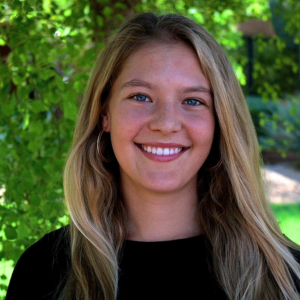
“In recent decades, the functioning of the US administrative state has undergone an important shift. Where once public services were provided primarily by the government itself, now many public services are provided by private entities through contractual arrangements. By dint of these contracts, government contractors open themselves up to significant liability. In response, courts have crafted a number of immunity doctrines to shield private contractors, immunity doctrines that are largely ignored by scholars. Through the Sallyanne Payton Fellowship, I will examine these doctrines through both the lens of federal courts as well as contracts in order to draw attention to this important phenomenon.”
Olamide Abiose
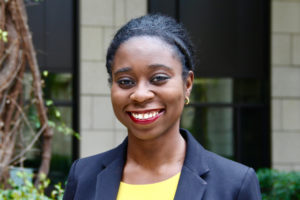
“I am interested in studying how aspects of the legal system itself are significant sources of stress and trauma, and thus give rise to public health disparities. Drawing from research around the neurobiology of stress, I plan to implement a project focused on studying the physical impacts of long-term solitary confinement among formerly-incarcerated individuals. The goal of this project would be to identify and establish the neurological effects that result from long-term solitary confinement (consistent with the literature around chronic stress) , and use these to influence Eighth Amendment challenges to the practice.”
Daniel Khalessi
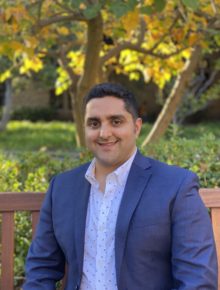
I am interested in the intersection of law and emergency. Emergencies force us to grapple with how to reconcile the demands of necessity, on the one hand, and the values of democracy and the rule of law, on the other. This fuses my interest in constitutional law with my background in foreign policy and national security before law school.
Diana Li
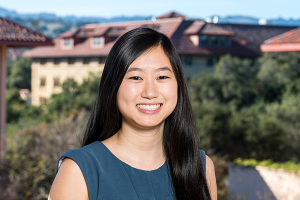
“I am interested in the fields of immigration and criminal law, as well as the growing intersection between the two areas. Specifically, I am interested in exploring issues of procedure, such as immigrants’ access to judicial review and defendants’ constitutional rights in the criminal justice system.“
Sydney Jordan
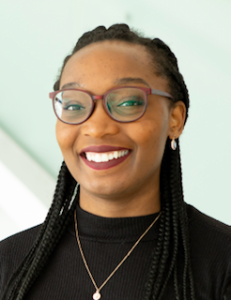
“I am interested in digging deeper into what it means for corporations to be responsible to the communities where they operate. I am also intrigued by the power dynamics between state and federal legal regimes for businesses with national footprints. Building on my past work with community development banks, I am particularly excited to explore how financial institutions are shaped by these legal systems and how their lending practices influence local economies.”
Timothy Rosenberger
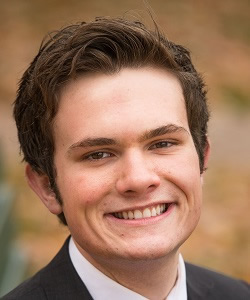
“My research interests center on the exchange of law between the United States and Europe, and extend from the impact of insufficiently explored continental law on the Federalist Papers to modern commercial exchange between the US, UK, and EU. At the moment, my focus is on transatlantic regulation of the attention economy, and the impacts of differing regulatory regimes for international content creators and distributors.”
Viviana Andazola Marquez
“I am exploring the fundamental rights of children at the crux of immigration law, family law, and constitutional law. I plan to relate my findings of children’s rights to a broadened sense of family separation, such as the rights of children of incarcerated people, the rights of children in the foster system, and so on.”
